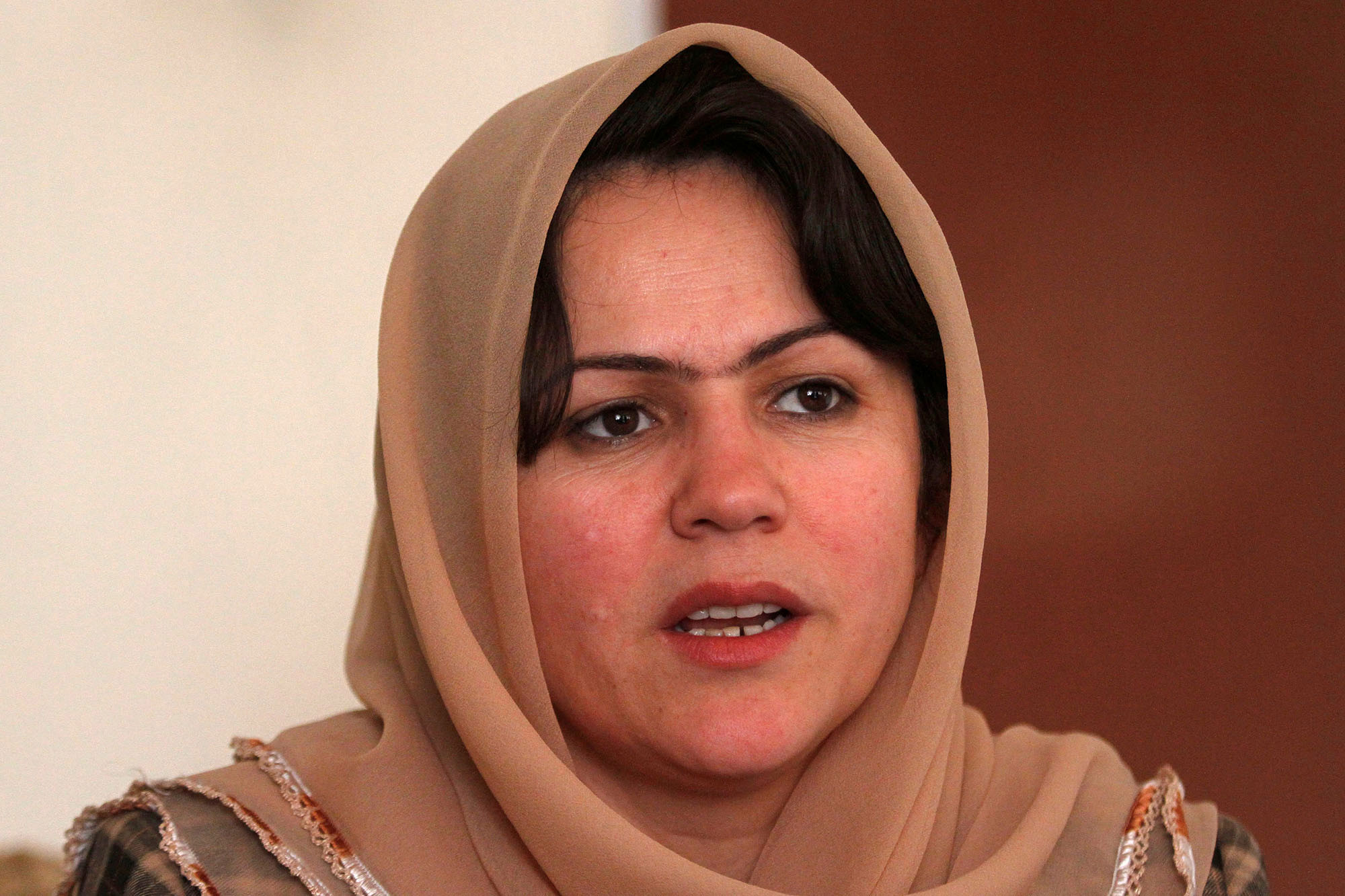
KABUL – Afghan women have no choice but to hope the Taliban respect their rights for the sake of peace, said Fauzia Kofi, the first woman to lead a political party in Afghanistan.
During their rule from 1996 to 2001, the Taliban imposed a medieval interpretation of Islam on Afghanistan, the question now is how much have they changed.
Banned from involvement in politics or speaking publicly, from working, school and leaving their homes without a male relative, women disappeared behind the all-enveloping burqa and the walls of their homes during those five years.
But with momentum building behind talks to end decades of conflict, Kofi, whose mission is to ensure women take their rightful place in her country’s democracy, is part of the healing process.
This year, she took part in the first two rounds of so-called intra-Afghan talks – aimed at bringing together Taliban representatives and Afghans from the government and civil society – to find a way to end decades of war.
“There is no other option. Like many other women I have my concerns, especially when it comes to the Taliban perception of women’s rights,” Kofi told Reuters in an interview.
“But given that my people have suffered more than four decades of war, I think the desire of all is a dignified peace, so I have no choice but to be cautiously optimistic.”
Kofi, 44, the first woman deputy of the lower house of parliament, is likely to attend the third round of intra-Afghan talks, expected in China soon. The earlier rounds were in Moscow and Qatar.
The Afghan talks have been running parallel to efforts by the United States and the Taliban to negotiate a deal on the withdrawal of US troops in exchange for Taliban security guarantees. The US-Taliban talks have been suspended but are expected to get going again soon.
The Taliban have refused to talk to the government, branding it a US puppet, so the intra-Afghan talks, attended by government officials but in a private capacity, are the main avenue for Afghans to explore power-sharing and discuss how they think their country should be run.
The question now is have the Taliban changed enough to accept the aspirations of a new generation who have come of age during a period of liberal rule ensured by the international community.
“Change is a very broad term,” Kofi said when asked if she thought the Taliban had altered their hardline positions.
“Their views on some social issues are probably different from the time they were ruling. However, they ought to practice and enforce measures publicly, to show they won’t be a burden on Afghanistan’s progress.”
Whatever happens, women cannot be let down by the peace process, she said.
‘POLITICAL PRESENCE’
The Taliban have recently been projecting themselves as more moderate, saying Islam gives women rights in areas such as business and ownership, inheritance, education, work, the choice of a husband, security and well-being.
But Kofi, who has a master’s degree from the Geneva School of Diplomacy, is not waiting to see if the men will accommodate women’s aspirations.
Kofi, who describes herself as a feminist, has formed her own political party, the Movement of Change for Afghanistan, to stake a claim to a fair share of political power.
She says her party is not just for women but she aims to promote the interests of half the population, who, she says, the others dozens of Afghan parties largely ignore.
“We need good and representative parties in all sectors of society,” she said.
“We need the political presence of women in power so we can get inside the structures to make our presence meaningful.”
She has no illusions about politics in Afghanistan. Voters’ expectations are high but people’s trust has been compromised time and again, she says.
“I hope we can be a place for all women of Afghanistan because it is desperately needed.”
